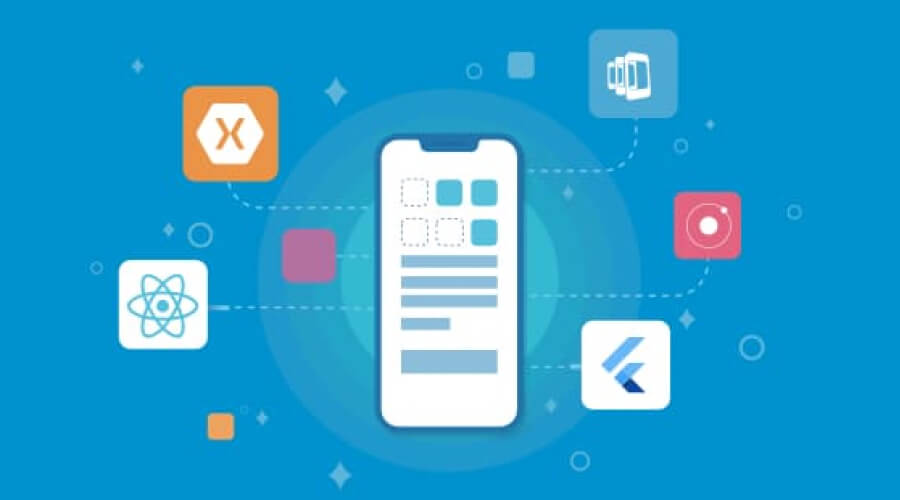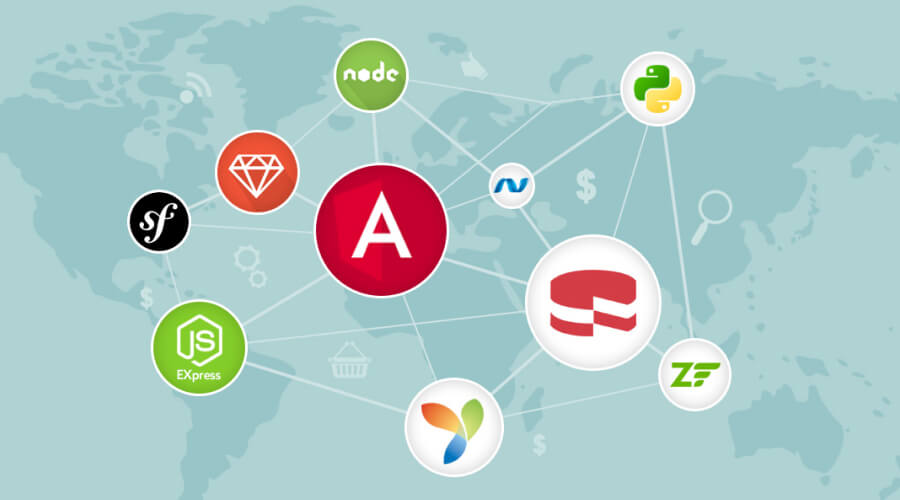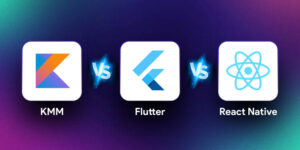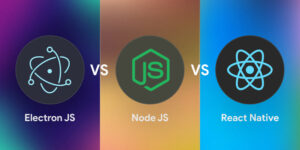
Mobile app development has become an essential part of modern businesses and organizations, as mobile devices have become the primary medium for accessing information and services. When developing, one crucial decision is choosing the right framework for mobile app.
With the myriad of frameworks available today, selecting the right one for your mobile app project can be overwhelming. Whether you hire a specialist mobile app development service or develop it in-house, good knowledge about different frameworks and their pros and cons will be helpful. In this post, we will explore the factors that trusted app development agency considers when choosing a framework for their mobile app development project and provide a comprehensive overview of popular frameworks in the market.
Factors to Consider When Choosing a Framework for Mobile App
Before diving into the details of various frameworks, it’s essential to understand the key factors to consider when selecting a framework for your mobile app development project. Here are some factors to keep in mind:

- Project Requirements: The first step in choosing the right framework is to understand the requirements of your mobile app development project. Consider factors such as the app’s complexity, the target platforms (iOS, Android, or both), the type of app (native, hybrid, or web), and the skills of your development team.
- Platform Compatibility: Different frameworks are designed for different platforms. Some frameworks are built explicitly for iOS, while others are designed for Android or cross-platform development. Consider the target platforms for your app and choose a framework that is compatible with those platforms.
- Development Speed: Time-to-build is a critical consideration for selecting a framework. Look for frameworks that offer pre-built components, code reusability, and good documentation, as these can significantly impact development speed.
- User Experience: Consider the UX capabilities of the framework, such as UI components, navigation, and performance. Look for well-equipped frameworks for a seamless user experience. You can also use mobile customer feedback software to monitor customer satisfaction.
- Performance: Performance is critical in mobile app development, as users expect fast and responsive apps. Consider the performance capabilities of the framework, such as rendering speed, memory usage, and optimization for mobile devices. Look for frameworks that are known for their performance and have a good track record of delivering high-quality apps.
- Community and Support: The development community and support available for a framework can significantly impact your development experience. Look for frameworks with an active community and reliable support channels to ensure smooth development and troubleshooting.
- Scalability: If you plan to expand your app in the future or build multiple apps, scalability becomes an essential factor. Consider the framework’s scalability, such as its ability to handle increasing complexity, support for modular architecture, and extensibility. Look for frameworks that offer scalability options to accommodate your future development needs.
Why Should You Prefer Cross-Platform Frameworks Instead of Native Ones?
Several key advantages make opting for cross-platform development popular over native development. Here are a few reasons to prefer cross-platform development frameworks.

- Cost and Time Efficiency: Cross-platform frameworks can save time and cost compared to developing separate apps for different platforms. With a single codebase, developers can write and maintain the code once, which reduces the development efforts and costs associated with writing platform-specific code.
- Code Reusability: Cross-platform frameworks allow for maximum code reusability, which means that a significant portion of the codebase can be shared across different platforms. This can result in easier maintenance and updates, as changes to the shared codebase can be reflected across all platforms simultaneously. This is particularly beneficial for businesses that need to quickly roll out updates or new app features across different platforms.
- Wider Reach: Cross-platform frameworks provide the opportunity to reach a wider audience as the app can be deployed on multiple platforms, including iOS, Android, Windows, and more. This allows businesses to target a larger user base and potentially increase their market reach.
- Skill Set Utilization: Cross-platform frameworks often allow developers to leverage their existing web development skills, such as HTML, CSS, and JavaScript. This means developers can utilize their expertise and experience, reducing the need to learn new programming languages or frameworks specific to each platform.
- Consistent User Experience: Consistent user experience means that the app’s look, feel, and functionality can be kept consistent across various devices, providing a seamless experience to users, regardless of the platform they are using.
Access to Native APIs: Many cross-platform frameworks provide access to native APIs, which allow developers to access the device’s native functionalities, such as camera, GPS, and sensors. This enables developers to create apps with native-like performance and user experience without sacrificing the cross-platform development benefits.
An Overview of Popular & Leading Framework for Mobile App
Here are the leading and most popular frameworks you can choose from.

- React Native: React Native offers a large collection of pre-built components, a fast-rendering engine, and a large community of developers. It is known for its performance and is widely used by popular apps such as Facebook, Instagram, Airbnb, and Walmart. React Native, the leading cross-platform framework for years in a row is backed by a huge global community of developers, ensuring robust documentation and a lot of help for developers, including tutorials and support forums.
- Flutter: Flutter is a unique widget-based cross-platform framework. Flutter is based on the Dart programming language, known for low footprint and less error-prone coding. Flutter is tremendously modular and helps achieve a native user experience while reusing maximum code across platforms. It is now the most popular mobile app development framework used widely for iOS, Android, web, and also desktop apps. When it comes to creating high-quality mobile apps, hiring Flutter developers from Binary studio is a great choice.
- Xamarin: Xamarin, a cutting-edge cross-platform framework, empowers developers to craft mobile applications using C# and .NET. With Xamarin, developers can leverage a unified codebase that can be shared seamlessly across iOS, Android, and Windows platforms. It is an ideal choice for enterprises seeking to develop apps for diverse platforms. Xamarin also facilitates access to native APIs and UI components, enabling the creation of apps with a native-like experience.
- NativeScript: With NativeScript, developers can craft truly native apps for both iOS and Android platforms, leveraging a single codebase. The framework offers seamless access to native APIs and UI components, facilitating the development of high-performance apps with a native-like experience. On top of that, NativeScript boasts a hot-reloading feature, enabling faster development iterations. It comes with a burgeoning community of developers, extensive documentation, and robust support.
- Ionic: Ionic, a widely-used open-source framework, empowers developers to create hybrid mobile applications using web technologies like HTML, CSS, and JavaScript. With Ionic, developers can craft apps that seamlessly run on both iOS and Android platforms, utilizing a single codebase. The framework boasts a rich library of pre-built UI components, offering many options for app design. Additionally, Ionic provides seamless integration with popular JavaScript frameworks like Angular and React, enhancing its versatility and flexibility.
- Mobile Angular UI: Mobile Angular UI provides a collection of UI components such as navigation bars, overlays, and modals optimized for mobile devices. Mobile Angular UI is based on AngularJS Frameworks, a popular JavaScript framework, and provides a smooth integration with AngularJS projects. It also offers a set of CSS animations for creating smooth and interactive user experiences.
- PhoneGap/Cordova: This framework offers seamless access to native APIs and UI components, enabling the creation of feature-rich apps with native-like performance. Moreover, PhoneGap/Cordova boasts an extensive collection of plugins that extend the functionality of apps, providing limitless possibilities for customization. With a vibrant community of developers, comprehensive documentation, and robust support, PhoneGap/Cordova is a popular choice for mobile app development projects.
Ending Notes
Choosing the best tech stack for any app project takes work, as many credible options have myriad strengths and weaknesses. Choosing a new framework involves meticulously considering your app project, future goals, budget development time, and available resources. It is always apt to go for cross-platform development if you want to make a good impression without putting in too much time and investment.






